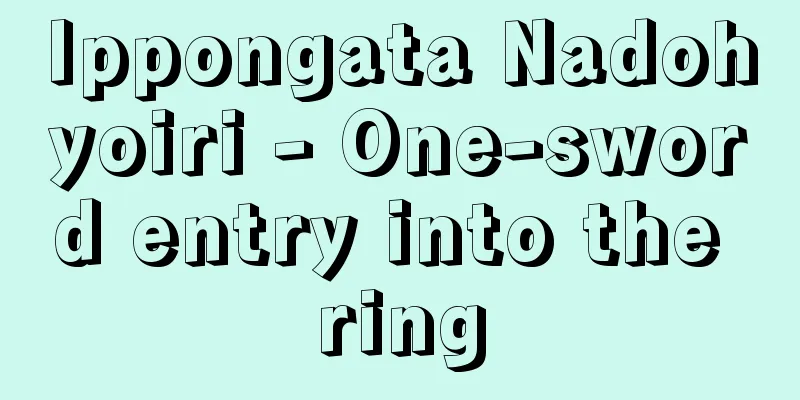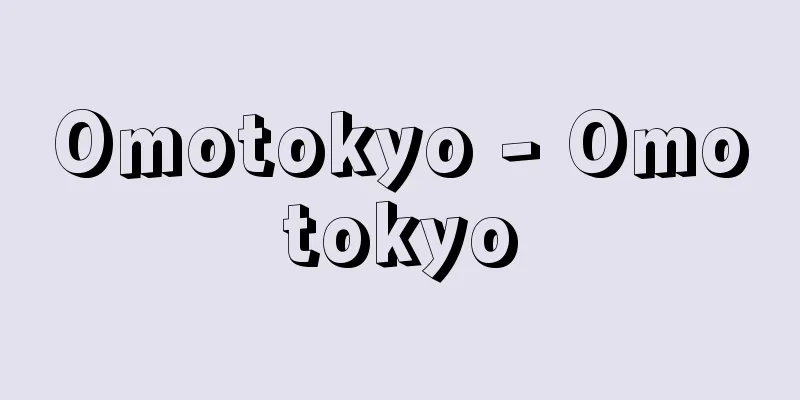Legal battle - Houteitousou

|
This refers to the struggle that labor unions, labor groups, etc., wage in courts at various levels to defend the legal legitimacy of their claims and rights. It is also called a legal struggle. In a broader sense, it also includes similar struggles by labor political parties. The essence of a capitalist state is its class domination, but legal struggles are nevertheless conducted based on the recognition of the relative uniqueness of the judicial function. In such cases, there are cases where they protest and state the bias or class nature of the law itself in order to gain widespread national support, and cases where they fight for active protection of the law because the law is not being followed in reality and disadvantages are occurring. For example, the latter is a typical example, and is widely seen, of filing lawsuits for unfair labor practices or accusations of violation of the Labor Standards Act, which are violations of the Labor Union Act and Labor Standards Act, as provisions and standards that are in violation of those acts. On the other hand, legal battles over the issue of restoring the right to strike in the public sector are questioning the existence and nature of such laws, asserting that the significant restrictions on basic labor rights imposed by special laws such as the National Public Service Act and the Act on Labor Relations of Administrative Execution Corporations (originally enacted in 1948 as the Public Enterprise Labor Relations Act) are unjust in light of the post-World War II Japanese Constitution, particularly Article 28's guarantee of workers' rights to organize, bargain collectively, and act collectively, and are questioning the existence and nature of such laws themselves. In any case, legal battles have become a common part of everyday struggles. [Seiichiro Hayakawa] [Reference items] | | | | |Source: Shogakukan Encyclopedia Nipponica About Encyclopedia Nipponica Information | Legend |
|
労働組合や争議団などが、各級裁判所を舞台として、自己の主張や権利の法的正当性を擁護するために行う闘争をいう。裁判闘争ともいう。広くは、労働者政党の同様の闘争も含まれる。資本主義国家の本質は、その階級支配性にあるが、にもかかわらず司法的機能の相対的独自性の認識に基づき、法廷闘争が行われる。その場合、法自体の偏向や階級性などについて陳述、抗議し、広範な国民的支持を得ようとする場合や、法が現実に守られず不利益を生じているがゆえに、積極的な法の保護を求めて闘う場合などがある。たとえば、労働組合法や労働基準法を規範とし、その規定・基準に反するものとして、不当労働行為の提訴や労働基準法違反の告発を行うなどは後者の代表的事例であり広くみられる。他方、官公労働部門での争議権回復問題にかかわる法廷闘争は、第二次世界大戦後の日本国憲法とくに第28条の勤労者の団結権、団体交渉権、団体行動権の保障に照らし、特別法たる国家公務員法や行政執行法人の労働関係に関する法律(1948年の制定当初は公共企業体労働関係法)などにおいて労働基本権の大幅制限を行っていることを不当とし、このような法自体の存在やあり方を問うものである。いずれにしても、法廷闘争は日常闘争の一環として一般化している。 [早川征一郎] [参照項目] | | | | |出典 小学館 日本大百科全書(ニッポニカ)日本大百科全書(ニッポニカ)について 情報 | 凡例 |
>>: Legally Infectious Diseases
Recommend
With origami - Origamitsuki
1. The item must come with an appraisal certificat...
Fujiwara no Hidehira - Fujiwara no Hidehira
Year of death: Bunji 3.10.29 (1187.11.30) Year of ...
Chemiluminescence
Also called chemiluminescence. A luminescence phen...
mercury meter - mercury meter
A unit of pressure. Symbol mHg. It is defined as 1...
Volcanic gravel - lapilli
Pyroclastic material ejected by volcanic eruptions...
Oldham, Joseph Houldworth
Born: October 20, 1874. [Died] 1947 Anglican clerg...
Hampton, C.
...The same tendency can be seen in modern works,...
Quick change - Hayagawari
A directing and acting technique in which an actor...
menetrier (English spelling)
... From the end of the 11th century in southern ...
Scurvy - disease
This disease is caused by a deficiency of vitamin...
Chromatic aberration
The position and size of an image created by a le...
Energy problem - energy problem
Since there is a very strong correlation between e...
Northern Coalsack - Kitano Coalsack
...Dense parts that indicate the birth of future ...
Sumon [village] - Sumon
A village in Kita-Uonuma County, central Niigata P...
Yasugibushi - Yasugibushi
A folk song from the Yasugi region of Shimane Pre...









